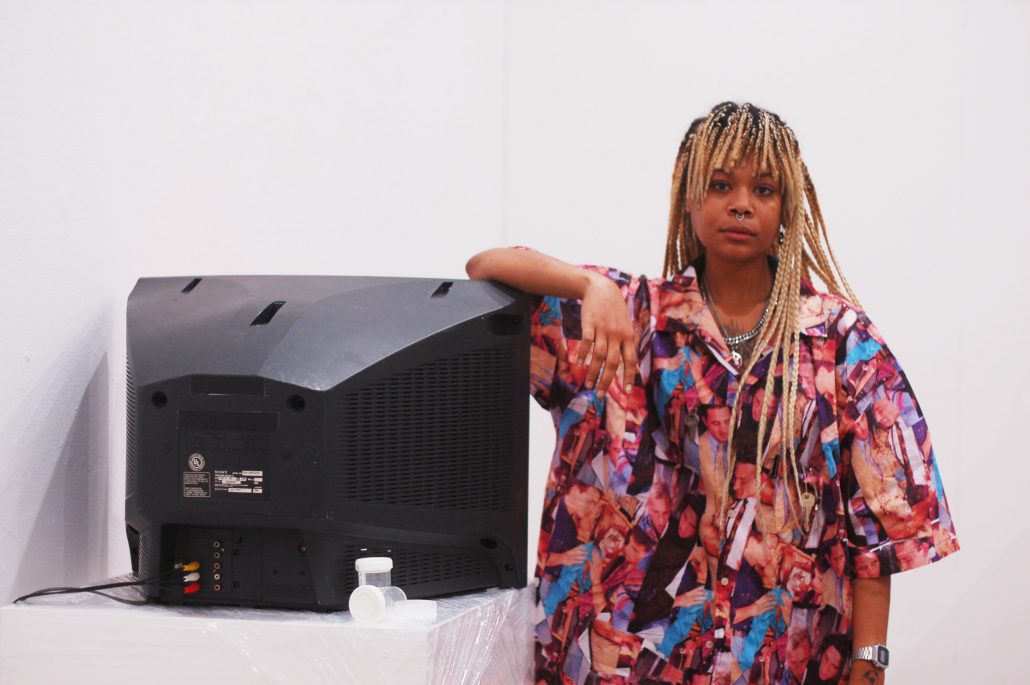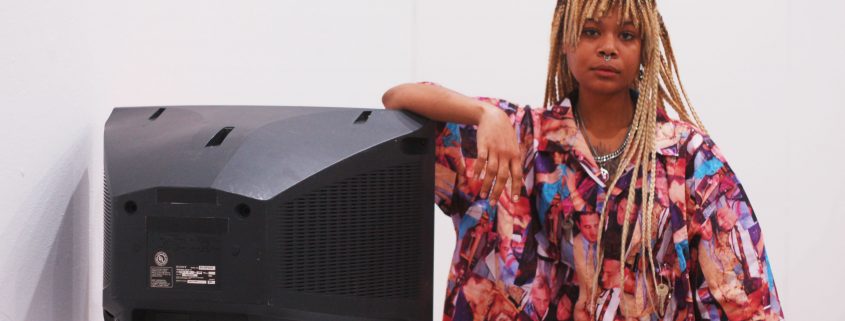Roski artist details experience with illness in new exhibit

Panteha Abareshi, a junior majoring in fine arts is currently showcasing their latest body of work, HIPAA VIOLATION. Their exhibition explores the nuances of existing in a chronically ill body and the implications of embracing and embodying one’s own mortality through a series of video, installation, performance and sculptural work.
Abareshi lives with sickle cell beta thalassemia, a disorder that has caused them to spend a significant amount of their life in medical care. Art was initially a coping mechanism for Abareshi but quickly became their passion.
Abareshi has been working on this project for a year now, which they received funding for last spring through the Farber Award, a grant for artists. HIPAA VIOLATION is the first time Abareshi has showcased media different than their two-dimensional work, but the challenge has proven beneficial for them.
“This has been an opportunity to expand on work that [they’re] doing in film, video and in sculpture and installation,” said Jennifer West, an associate professor at the Roski School of Art and Design who is both Abareshi’s mentor and professor.
The exhibition is an interactive space that invites viewers to step out of their own bodies and to enter Abareshi’s spaces.
“It’s going to be an interactive space because there is like stairs that people are going to be climbing just to sort of discuss ability and inability and accessibility and all of that,” Abareshi said.
Featuring their medical records and various medical sculptural ephemera, the exhibit further encourages viewers to directly engage with the artist’s experience.
“My work is very much so just me communicating my experience, and my experience isn’t one that’s accessible to a lot of people,” Abareshi said. “It’s also very unique to me, as everyone’s experience is, but disability and its intersections with gender and race and mental illness and all of that isn’t discussed or really ever put on open exhibition.”
Abareshi explained that their approach has never been to change someone’s mind or provide a single concrete message. Instead, they simply aim to tell their story by using vulnerability to relate to audiences’ own experiences.
“The things that I’m talking about — like fear and weakness and vulnerability — all of these things aren’t limited to the experience of someone with an illness,” Abareshi said.
Their art encourages people to step out of their comfort zones to find the commonalities between their stories and those of others.
“Everyone experiences these things,” Abareshi said. “Everyone can be terrified and broken down and anxious and all of these things, but it’s like framing it in this way also communicates to people who never have experienced anything that I have … We all are going through this, but this is my very specific experience of that, and putting that on display.”
Lucy Allen, a junior majoring in cinema and media studies and a friend of Abareshi, said this exhibit is particularly special in how it provides a visual representation of Abareshi’s experiences.
“It’s always just cool to see a friend who’s an artist bring to life and bring into the physical world the concepts and thoughts that you’ve heard them express and that you know are important to them,” Allen said.
HIPAA VIOLATION is set up inside the Helen Lindhurst Gallery at Roski, a space dedicated to providing student artists a place to explore their ideas through art. Abareshi’s work is a testament to the power of the space, as their work completely transforms the gallery to simulate being in a hospital.
“What’s been really significant is [them] having a full solo exhibition in a space that [they] could take over and transform into what is an environment very similar to the mechanisms around a hospital,” West said.
Abareshi’s work is ultimately an exploration of the artist’s own configurations within their body, within medical systems and within society. But it’s also meant to stress empathy in everyone.
West emphasized the importance of Abareshi’s highly personal work connecting with a wide audience.
“[Abareshi has] dealt with these institutions very personally with [their] own body and [their] own mind, and so that would be of interest to the larger University and to the public in general,” West said.

